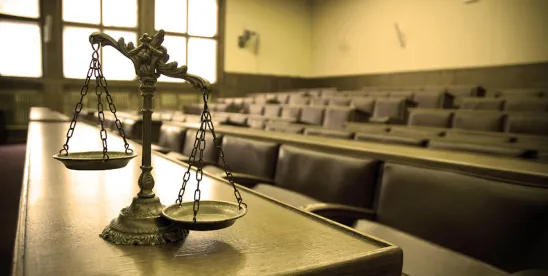The June 8, 2025, conviction in the Brooklyn federal courthouse of Nicole Daedone and Rachel Cherwitz, co-founder and former sales executive, respectively, of the sexual wellness company OneTaste, marks a significant development in a controversial case that has drawn national attention. The verdict, which found the wellness educators guilty of a single count of forced labor conspiracy, a crime typically associated with sweatshop operators and sex traffickers, relied on novel legal theories that could have far-reaching implications for educators, religious leaders, and community organizers who engage in intensive one-on-one interactions with dedicated students or followers.
OneTaste, founded in San Francisco in 2004, gained prominence for its unconventional wellness practices centered around "orgasmic meditation," which the company claimed could lead to personal growth, empowerment, and heightened intimacy. However, in April 2023, following a series of critical media reports and a salacious Netflix documentary, the U.S. Attorney's Office for the Eastern District of New York indicted Daedone and Cherwitz on a single count of conspiracy to obtain forced labor. Notably, prosecutors did not charge any substantive counts of forced labor or sex trafficking, instead relying on a novel application of the conspiracy statute.
The case against Daedone and Cherwitz raised eyebrows from the start. Prosecutors alleged that the defendants had used psychological coercion and manipulation to compel participants' labor and commitment, despite no evidence of physical confinement, violence, or overt threats. Over the course of the five-week trial, which began on May 5, 2025, the government presented testimony from nine former OneTaste staff and students who claimed to have felt pressured to devote increasing time and resources to the organization.
A Verdict Built on Contradictions
The trial's outcome crystallized a fundamental paradox: How can voluntary participation in educational programs constitute forced labor? All nine of the government's complaining witnesses testified they received valuable benefits from OneTaste's teachings on meditation and sexuality. No evidence showed physical restraint, prevented departure, or traditional markers of coercion. Indeed, prosecutor Nina Gupta conceded in closing: "There may not have been physical chains holding the victims in place. There may not have been locks on the door." Instead, the government argued that losing "your job or your friends or your family or your belief system" constituted serious harm under the forced labor statute - establishing a precedent that could criminalize any religious community, athletic program, or dedicated community where participants develop deep commitments. Yet after two days of deliberation, the jury returned a guilty verdict for each defendant.
The immediate remand by the court of both defendants - after two years of full bail compliance - added theatrical punctuation to what attorneys following the case characterized as a "show trial." Judge Diane Gujarati cited media coverage as justification for detention, though that same media attention had existed throughout their pretrial release.
As troubling as the verdict itself was the process that produced it. The defense found itself systematically hamstrung: exculpatory evidence excluded, witnesses blocked, and structural advantages tilted entirely toward the prosecution. The government's star witness was withdrawn on March 12, 2025, mere weeks before trial. Her case-in-chief journal entries that the government had asserted were contemporaneous 2015 documents were exposed as having been written in 2022 for a Netflix film. Yet the prosecution proceeded as if this credibility collapse was merely a minor setback. In the immediate wake of the debacle, lead prosecutor Gillian Kassner left the case and resigned her EDNY position. She was replaced by attorneys who inherited a case built on documented deception and government misconduct.
The Stolen Privilege Precedent
The first alarming precedent emerges from the court's handling of attorney-client privilege. FBI Agent Elliot McGinnis obtained stolen privileged documents from OneTaste's corporate files through a disgruntled former contractor and used them to build an investigation plan. Rather than excluding this tainted evidence, Judge Gujarati ruled that Daedone and Cherwitz lacked standing to challenge the government's use of their own company's privileged materials.
This ruling creates a roadmap for prosecutorial abuse: steal a company's privileged documents, use them to build a case against executives, then argue those executives cannot challenge the theft because they personally don't "own" the corporation's privilege. The implications extend far beyond this case. Any executive, founder, or corporate officer now faces potential prosecution built on stolen privileged materials with no meaningful remedy.
Consider the chilling efficiency of this precedent. A competitor, disgruntled employee, or government informant can steal privileged attorney-client communications. The FBI can use these stolen documents to identify witnesses, develop theories, and build prosecutions. The targets - the very people the privilege was meant to protect - are left defenseless, told they lack "standing" to challenge the use of their own legal advice.
Forced Labor's Radical Expansion
The second precedent redefines forced labor itself. For over a century, trafficking and forced labor prosecutions required clear elements: physical restraint, threats of violence, debt bondage, or concrete mechanisms preventing departure. The OneTaste verdict introduces vague and undefined social pressure and/or attraction as evidence for criminality.
Under this new interpretation, teaching combined with student dedication equals trafficking. Throughout the trial, prosecutors conflated consensual sexual acts between adults with OneTaste's educational philosophy, giving the proceedings the flavor of a sex crimes prosecution without any sex crimes charged. The nine complaining witnesses acknowledged their intimate encounters were consensual at the time, yet the government used them to criminalize Nicole Daedone's teachings about sexuality and consciousness. The government’s case effectively put protected speech on trial, transforming philosophical instruction into evidence of labor trafficking.
The government's theory depended upon retroactive claims of victimhood. Defense cross-examination revealed government witnesses who spent years praising OneTaste's impact on their lives. The government recast them as victims who simply hadn't realized their exploitation at the time due to “brainwashing.” This temporal alchemy could allow prosecutors to transform any intense experience into labor trafficking: simply find former participants willing to reframe their dedication as manipulation.
Constitutional Issues Ripe for Appeal
The verdict raises deep constitutional concerns that may go before the Second Circuit on appeal:
First Amendment Suppression: The prosecution criminalized the teaching of ideas themselves. OneTaste's philosophy about sexuality, consciousness, and human connection - protected speech by any measure - became evidence of a criminal conspiracy. The government essentially argued that teaching powerful ideas that change behavior can constitute labor trafficking.
Sixth Amendment Violations: The right to present a defense was impaired when Judge Gujarati systematically excluded exculpatory evidence and blocked defense witnesses. The confrontation clause was challenged when the government's withdrawn star witness and her fabricated journals shaped the proceedings via media influence on other witnesses and the jury. Notably, the government’s presentation mirrored themes, language, and stolen OneTaste video used in the Netflix film.
Thirteenth Amendment Inversion: Perversely, a constitutional amendment designed to end slavery now criminalizes voluntary education. The government expanded "serious harm" to include “teachings” on enlightenment and well-being. It argued that psychological growth and lifestyle changes can constitute evidence for “serious harm.” This potentially remakes the Thirteenth Amendment-derived anti-trafficking statute into a tool for prosecuting any organization that successfully transforms lives.
Due Process Denial: The admission at trial of Netflix-generated narratives and scripts, even after the withdrawn star witness admitted fabrication for the film, combined with the exclusion of defense evidence showing voluntary participation and lack of "reasonable person" serious harm in the TVPA statute, created a fundamentally unfair trial. The court's refusal to remedy documented FBI misconduct - including Agent McGinnis's manipulation of evidence and witnesses - denied basic procedural justice.
A Template for Persecution
The verdict hands prosecutors new weapons. Any organization that inspires deep commitment - from jujitsu dojos to coding bootcamps, from religious communities to political movements – could potentially face forced labor conspiracy charges. The formula is simple: find former participants willing to recharacterize their voluntary participation as manipulation, add media coverage labeling the group a "cult," and prosecutors can build a trafficking case without proving any actual coercion.
As this case proceeds to the Second Circuit, the stakes extend beyond two women facing lengthy prison terms for teaching meditation. Writing in The American Conservative, former Trump administration Deputy General Counsel James Lawrence warns that the government's coercive control theory, "can be readily repackaged and deployed against churches, religious institutions, or other designated enemies of the moment." Constitutional scholars echo this alarm. "If voluntary participation in transformative education can be prosecuted as trafficking, every religious seminary and leadership program in America faces potential criminal liability," notes one First Amendment litigator who reviewed the trial record.
Defense attorneys report growing concern about the stolen privilege precedent. "Once the government can use stolen attorney-client documents without remedy, the privilege is dead," observed a veteran white-collar defense lawyer. "This verdict hands prosecutors a weapon limited only by their imagination.”
Lawrence, who litigates speech issues, sounds the alarm for religious freedom: "Evangelization becomes recruitment. Labor is extracted through church ministries. Holding others accountable for sin and instructing the faithful to avoid temptation is control." His warning resounds beyond religious contexts. Any organization fostering personal development through intensive commitment now faces the possibility of this prosecutorial template.
U.S. v. Cherwitz, et al., No. 23-cr-146 (DG) (E.D.N.Y.)
The opinions and views expressed in this article are those of the author or of those cited by the author and do not necessarily reflect the views of The National Law Review.




 />i
/>i
